News & Media
Exploring resources to mitigate the digital divide in rural areas
From 21 to 22 May 2025, Unisa staff from the Department of Institutional Advancement (DIA) and the KwaZulu-Natal Regional Office attended the 3rd Annual Rural Education Conference and Exhibition held at the Durban Exhibition Centre, organised by the Federated Management Institute, under the theme It takes a whole village to raise a child - each one, teach one. Key highlights from the conference include an analysis of the impact of digital education for rural learners and potential ways to mitigate the digital divide.
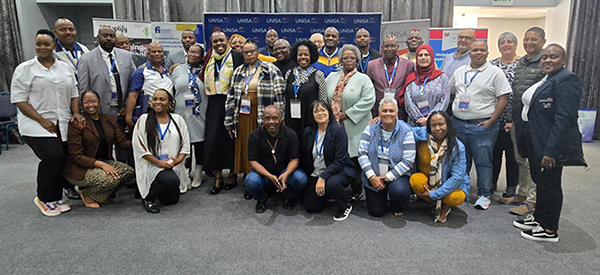
Conference attendees, exhibitors and presenters
Overview of the 2025 Rural Education Conference and Exhibition
Rural education in South Africa and on the continent faces significant challenges, including inadequate infrastructure, resources and qualified teachers. Despite the country's commitment to quality education, rural areas are disproportionately disadvantaged. The introduction of technology in education has been touted as a potential solution, but its effectiveness is hindered by factors such as inadequate infrastructure, internet connectivity and teacher training.
The conference delved into the impact of technology on rural education in South Africa and, specifically, in the KZN region, highlighting the benefits and limitations of digital learning platforms, online resources and educational apps. The findings suggest that technology has the potential to improve educational outcomes, but it requires reliable internet connectivity, device availability and teacher training. A nuanced understanding of the social and cultural contexts is also necessary.
Dr Phumzile Langa, Director for Rural Education from the Department of Basic Education, addressed the audience from her presentation themed Student Teacher Work Integrated Learning Programme. Langa said that this programme, which is an initiative that she leads, is currently operating in Limpopo in collaboration with Unisa from an existing memorandum of understanding. She emphasised that the project has been a success so far and that there are plans to expand it to other areas, such as rural KZN and Eastern Cape.
Monica Woodhouse, Founder and Executive Director of Give a Child a Family, and an advocate for child protection and justice, delivered a presentation titled Beyond devices: Cyber safety, anti-bullying, schools’ role and family power in rural education’s digital future. Woodhouse raised awareness about bullying, including cyberbullying, the resulting mental challenges thereof, and ways in which one can seek help, including support for victims and survivors of bullying. Continuing, Woodhouse made reference to a tragic case of a female learner, who committed suicide after experiencing bullying which was recorded and spread on social media. Woodhouse advised that parents should actively monitor their children, including their online activities and be aware of any signs of distress which could be a sign of witnessing or experiencing bullying.
Speaking next, international human rights lawyer and child law and disability rights expert Moyahabo Thoka, delivered her address on The role of the courts in advancing equal access to education in rural South Africa, during which she presented case studies describing the challenges children face in rural schools, key among them, she said, is the inadequate access to education.
Throughout the presentations, several members and organisations showed interest in working with the university to further capacitate teaching, learning and anti-bullying mechanisms at schools in rural areas. They include the Professional Educators’ Union, the Student Teacher Work Integrated Learning Programme, an initiative of Langa, and Sally Nhlanhla, CEO of Rekindle Learning, which is a partner of Unisa Enterprise.
During the event, the Unisa marketing team informed current and prospective students about the university’s offerings and demonstrated how to seamlessly navigate the university’s website to find details about their desired qualification.
The two-day event presented valuable networking opportunities. Attendees demonstrated strong interest in programmes related to rural education, community development, and information technology.
*By Mduduzi Ndunakazi, Regional Communications & Marketing Officer, Unisa KwaZulu-Natal Region, with additional input by Ellen Mofokeng, Department of Institutional Advancement
Publish date: 2025-05-29 00:00:00.0


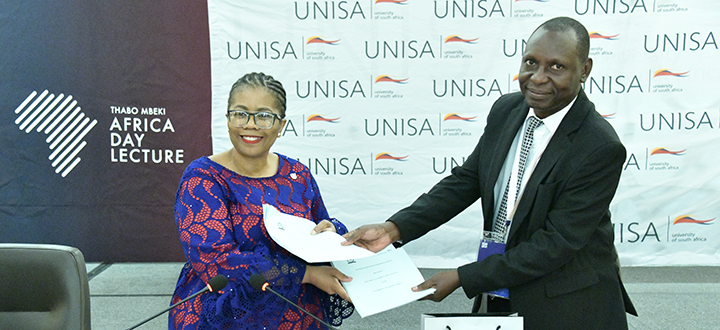 Unisa partners with leading Tanzanian universities to advance African higher education
Unisa partners with leading Tanzanian universities to advance African higher education
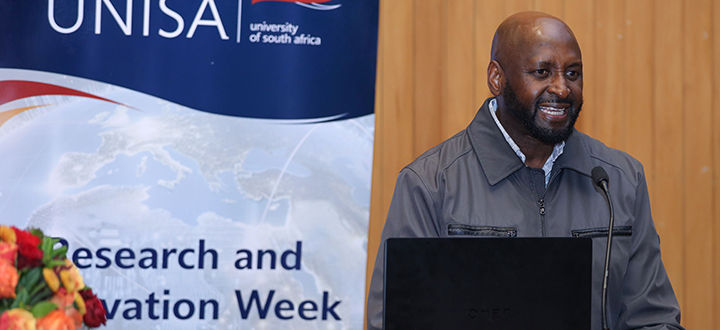 Research with impact – moving beyond bean-counting
Research with impact – moving beyond bean-counting
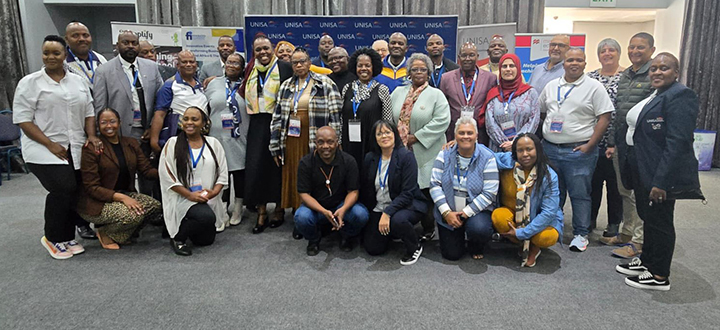 Exploring resources to mitigate the digital divide in rural areas
Exploring resources to mitigate the digital divide in rural areas
 Unisan in the home straight at the NSTF-South32 Awards
Unisan in the home straight at the NSTF-South32 Awards
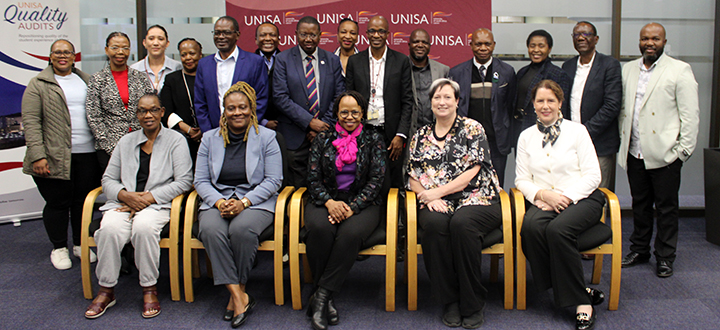 Unisa LIS reflect on successful 2025 external peer review
Unisa LIS reflect on successful 2025 external peer review